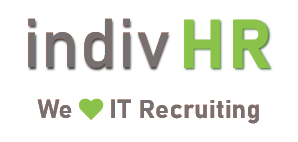Are you losing candidates during the recruitment process and wondering why this is the case or what you can do about it? For many companies, the recruitment process takes too long. On the one hand, this leads to candidates investing time in application processes but not feeling properly valued. On the other hand, companies lose efficiency due to long recruitment processes, thereby incurring costs and damaging their reputation on the labour market. Worse still, they lose potential top candidates due to lengthy decision-making processes.

In this article, we shed light on how and where delays occur in the recruitment process and what impact delays have on both companies and potential candidates.
Why does the recruiting process take so long?
There are various factors that can delay the recruitment process. The following list shows the most important factors:
Tests, assessments and presentations
In order to determine the suitability of candidates, many companies use tests, assessments or presentations as part of the application process, which candidates prepare and present during an interview. These can make sense for certain roles and are also used by us as an IT recruitment agency. Our many years of experience show that many companies have implemented rigid, internal guidelines and processes in recruitment. For example, presentations are requested from all candidates, regardless of the position. In times when it is very difficult to fill vacancies, it is all the more important to make the application process pleasant and efficient for candidates. In this context, the question arises as to whether it really makes sense, for example, for a senior cloud consultant with relevant certifications and relevant professional experience to complete a technical test at the beginning of the application process? We therefore recommend critically scrutinising the use of these methods. Only use them where they really make sense. Good Recruiter act on an equal footing with hiring managers and should do everything possible to complete application processes quickly.
Poor planning of the application process
Employers should have a clear and consistent process that defines the roles, responsibilities and timelines of each phase. Without proper planning and communication, the process can become confusing, inefficient and delayed. Here, "one size fits all" is not always the right approach. Therefore, we recommend adapting recruitment processes to the seniority and content of the role. Does a software developer really have to go through 3 rounds of interviews before a decision is made in favour of or against the candidate(s)? Wouldn't one round of interviews with the hiring manager and recruiter be enough, which can last 1.5-2 hours and a decision can be made immediately afterwards? Does a 2nd or even 3rd interview really bring so much more? Now you may be saying, but of course it does, after all, the manager has to interview the manager. Okay. But can't he/she just come in for 30 minutes at the end of the interview?
Decision-makers in the recruiting process
Bringing in multiple interviewers can offer different perspectives and insights, but can also cause scheduling problems and decision-making difficulties. Time and again we see processes where candidates speak to 4-5 managers as part of their application. Is this essential? Here too, organisations should critically question whether all previous interview participants are really necessary for a decision or how the number of participants can be streamlined. It is important to remember that decision-makers often need a lot of time to make a decision. The more colleagues are involved in the application process, the longer the decision takes - and the candidate is very likely to be off the market in the meantime.
Delays in interview scheduling
You have an application for your vacancy that looks very good on paper. You would like to speak to the person quickly or set up an initial interview. Time and again, we see with clients that candidates are only contacted by companies to set up an interview 2-3 weeks after the presentation or their application. The interview may then only take place a further two weeks later because the manager responsible does not have time beforehand. This means that four weeks have already passed before the candidate can introduce themselves in person. Our experience shows that around 50 % of candidates do not wait for this time, but decide in favour of another company in the meantime. A lot of time often passes after the first interview before companies get back to candidates. There is a very high probability that candidates will lose interest in the meantime.
Communication with the hiring managers
We have had very good experience in recommending managers to block fixed interview times in the calendar. This makes it much easier for the recruiting organisation to set up interviews with potential candidates. The same applies to coordination with the individual managers: recruiters do themselves a favour if they have a fixed appointment with the hiring manager once a week to discuss the status of the candidates in the process. This may sound unusual for the managers at first, but after a short time you will learn to appreciate the efficiency. The appointment doesn't always have to last half an hour, but a fixed update appointment with the manager, which may only last 5 or 10 minutes, is certainly better than always asking for an update on the candidates by email and chasing after information. It is important that the appointment is fixed in the recruiter's and hiring manager's diary.
How can you optimise your recruiting process?
- Always adapt your standard recruiting process to the respective role. Identify steps that unnecessarily prolong the application process and eliminate them.
- Arrange with the Hiring Manager Regular update dateswhere they talk through the candidate pipeline and the status of each candidate in the process. You can also give the manager valuable insight into the candidate market so that they can develop a better feeling.
- Determine together with the Hiring Manager Fixed interview dateswhich are blocked in his/her calendar. This allows you to invite relevant candidates directly to the interviews without further coordination and avoid unnecessary delays.
There are often numerous other aspects that slow down the recruitment process. We are happy to support you in customising your recruiting processes. Together with you, we will analyse each individual step and create efficient processes that will result in you losing fewer candidates during the application process. Simply set a non-binding and free appointment atwhere we can talk about it.







